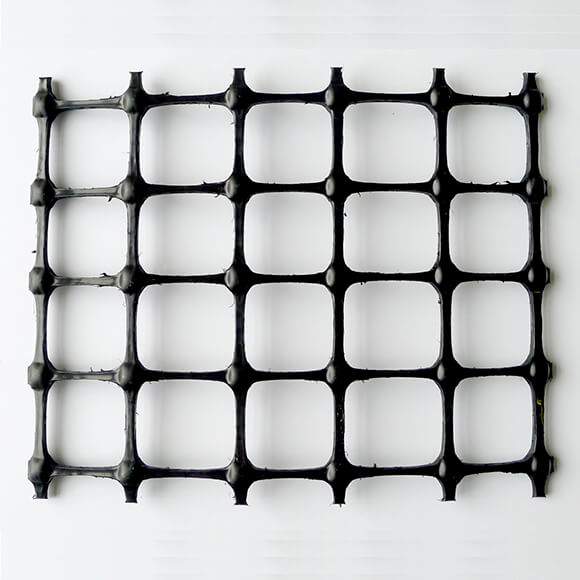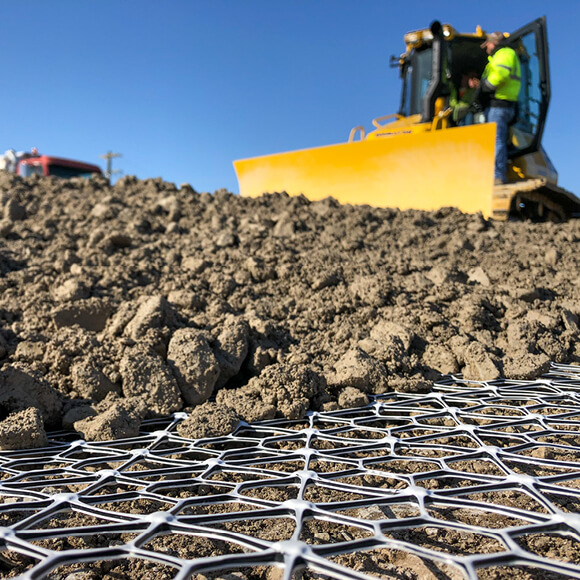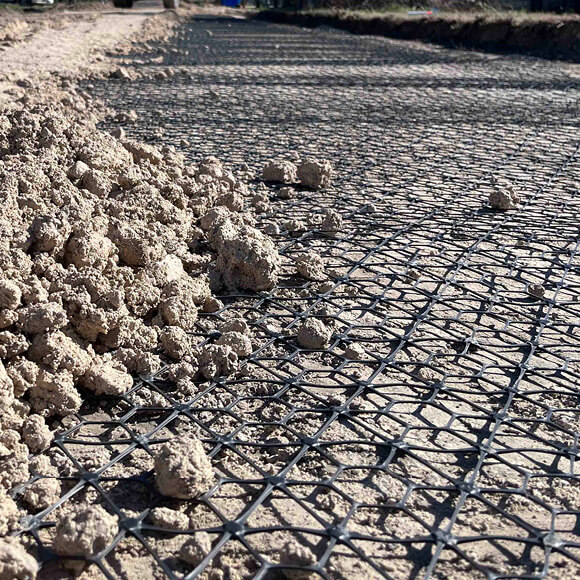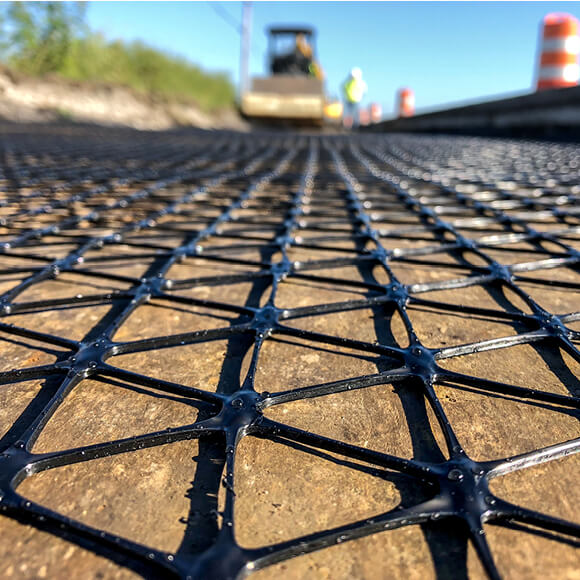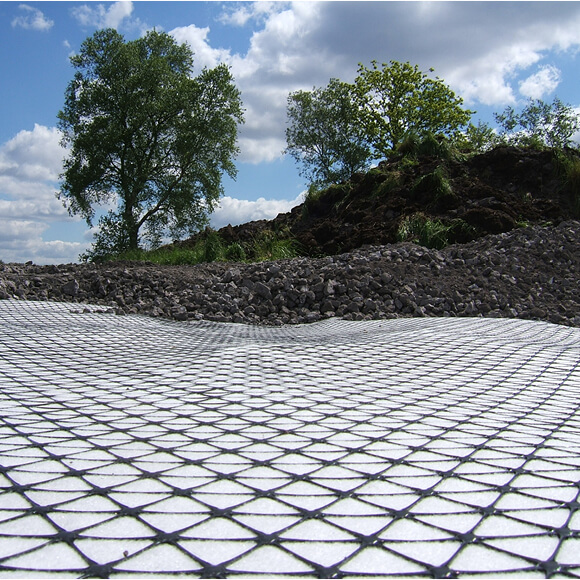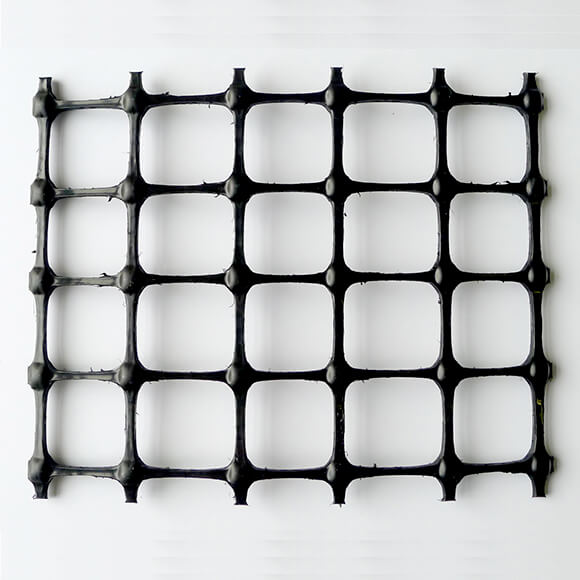
Tensar® Biaxial (SS) Geogrids
- The original geogrid for construction over weak soils
- Invented by Tensar in the early ‘80’s
- The forerunner to Tensar® TriAx® geogrid
Need a Tensar design for your project?
Tensar’s design team can produce a free of charge “Application Suggestion” to illustrate what Tensar can achieve and how much value can be added to your project.
Tensar biaxial geogrid is the original ground stabilisation geogrid. Invented by Tensar, this form of geogrid revolutionised construction over weak soils when it was first introduced for soil stabilisation back in the 1980s. Since then, Tensar SS biaxial geogrids have been used for mechanical ground stabilisation, with over 500M+ squ. meters installed globally.
In recent years, other Tensar geogrids including uniaxial, triaxial and InterAx have been developed and can now offer even better value, decreasing the overall cost of a project. With decades of research, we have evolved our technology to create more advanced geogrids with a longer service life and greater cost savings.
What is a biaxial geogrid?
A biaxial geogrid is a type of geogrid made from polymer. It is used for ground stabilisation, offering high strength in both the longitudinal and latitudinal directions due to its bidirectional grid design.
What is the difference between uniaxial and biaxial geogrids?
Biaxial geogrids provide high strength in two directions due to their bidirectional grid structure, whereas uniaxial geogrids offer strength mainly in one direction (along the roll length) with just enough strength in the other direction to support the open aperture structure.
Biaxial geogrids are available in SS20, SS30, SS40, SSLA30



